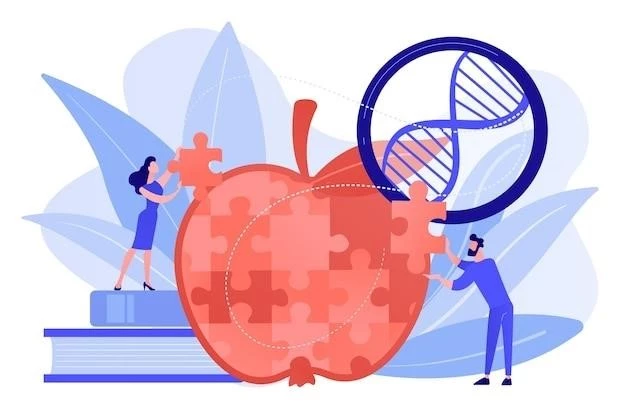Introduction to PEPCK 2 Deficiency
Phosphoenolpyruvate carboxykinase (PEPCK) deficiency is a gluconeogenesis disorder that results from impairment in the enzyme PEPCK, comprising cytosolic (PEPCK1) and mitochondrial (PEPCK2) forms of enzyme deficiency․ Symptoms include hypoglycemia and lactic acidosis․
Phosphoenolpyruvate carboxykinase (PEPCK) deficiency results from impairment in the enzyme PEPCK, with cytosolic (PEPCK1) and mitochondrial (PEPCK2) forms․ Symptoms onset is neonatal with hypoglycemia and lactic acidosis․ Research shows the unique metabolic significance of PEPCK in gluconeogenesis pathways and its potential genetic causes․
Types of PEPCK Deficiency
Phosphoenolpyruvate carboxykinase (PEPCK) deficiency includes cytosolic (PEPCK1) and mitochondrial (PEPCK2) forms of enzyme deficiency․
Description of the rare gluconeogenesis disorder and its impact on enzyme PEPCK
Phosphoenolpyruvate carboxykinase (PEPCK) deficiency results from impairment in the enzyme PEPCK, with cytosolic (PEPCK1) and mitochondrial (PEPCK2) forms․ Symptoms onset is neonatal with hypoglycemia and lactic acidosis․ Research shows the unique metabolic significance of PEPCK in gluconeogenesis pathways and potential genetic causes․
Symptoms and Onset of PEPCK 2 Deficiency
Phosphoenolpyruvate carboxykinase (PEPCK) deficiency typically presents neonatally with symptoms such as hypoglycemia and lactic acidosis․
Understanding neonatal onset and associated symptoms like hypoglycemia and lactic acidosis
PEPCK deficiency presents neonatally with symptoms such as hypoglycemia, lactic acidosis, and other metabolic abnormalities․

Genetic Mutations and Inheritance of PEPCK 2 Deficiency
PEPCK deficiency can be caused by genetic mutations, passed down hereditarily or occurring randomly․
Evaluating causes of the disorder through hereditary or random genetic mutations
PEPCK deficiency can stem from genetic mutations, either passed down in families or occurring spontaneously․
Diagnosis and Laboratory Findings
PEPCK 2 deficiency is diagnosed through recognizable urine organic acid patterns and deficient ketogenesis in patients․
Examining recognizable urine organic acid patterns and deficient ketogenesis in patients
Patients with PEPCK 2 deficiency are diagnosed based on identifiable urine organic acid patterns and decreased ketogenesis in their metabolic profile․
Impact of PEPCK Deficiency on Gluconeogenesis
PEPCK deficiency hinders the conversion of proteins and fats into glucose, disrupting vital gluconeogenesis pathways․
Investigating the role of PEPCK enzyme in converting proteins and fats to glucose
The PEPCK enzyme is crucial in converting proteins and fats into glucose, a process disrupted in individuals with PEPCK 2 deficiency․
The treatment of PEPCK 2 deficiency typically involves managing episodes of low blood sugar through dietary modifications and, in some cases, supplements to support metabolic function․
Treatment and Management Approaches
Treatment for PEPCK 2 deficiency focuses on managing low blood sugar episodes through dietary adjustments and, in some cases, metabolic support supplements․
Research Studies on PEPCK 2 Deficiency
Research explores the molecular mechanisms and metabolic implications of PEPCK 2 deficiency, shedding light on its unique role in metabolic pathways․
Reviewing recent research on the molecular mechanisms and metabolic implications of PEPCK deficiency
Recent studies have delved into the molecular intricacies and metabolic repercussions of PEPCK deficiency, highlighting its critical role in metabolic pathways․
PEPCK 2 deficiency has been linked to metabolic disorders like diabetes and obesity, indicating potential shared pathways and mechanisms․
Association with Other Metabolic Disorders
Studies have linked PEPCK 2 deficiency with conditions such as diabetes and obesity, suggesting shared mechanisms and pathways․
Individuals with PEPCK 2 deficiency face long-term effects; understanding the prognosis is crucial for managing the condition effectively․

Prognosis and Long-Term Outlook
Understanding the long-term effects and prognosis for individuals with PEPCK 2 deficiency is essential for managing the condition and improving patient outcomes․
Conclusion and Future Directions
Summarizing key findings on PEPCK 2 deficiency highlights the need for continued research to enhance diagnosis٫ treatment٫ and long-term management strategies․
Summarizing key findings and proposing areas for future research and clinical advancements
Current research on PEPCK 2 deficiency emphasizes the need for further studies to enhance diagnostic methods٫ treatment strategies٫ and long-term care to improve patient outcomes․
